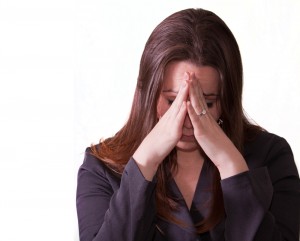The journal Spine has published an article questioning implanted hardware use in spinal fusion surgeries for back problems. The Spine study found that the implantation of hardware does not improve results. The authors also determined that the hardware carries a higher risk of complications, including infections which can occur more readily and can also be harder to see because the hardware can block a clear radiological view of the spine.
The hardware surviving over time is another problem. When screws, plates, or rods break, the results can push right on a nerve and cause significant pain.
It is hard to offer a lot of opinions on this without seeing the study. (Oh, yeah, and the not being a spinal surgeon part.) Also, this is just one study. But in our practice, we see a lot of disc injuries and other types of back complications resulting from a crash’s resulting trauma.
Rarely does hardware seem to be a magic elixir for the patient. Nor do multiple surgeries, which many times do not have a better outcome than the preceding surgery.
One of our lawyers has an auto accident case in Baltimore where the client is on his 8th back surgery (no prior back complaints before the car crash). Just awful. Not that it is not medically useless because sometimes you would rather have a 20% chance of success than a 5% chance.
The Good News on Spinal Surgery
That’s the unpleasant news. The pleasant news is spinal surgery has come a long way. Not that many years ago, spinal surgery required a large incision, and the patient wore a body cast for six months to a year.
Just last year, a spinal surgeon at the University of California performed one of the first minimally invasive spinal surgeries in the U.S. using a new technique to stabilize the lumbar spine called axial lumbar interbody fusion. The fusion requires only a tiny incision in the back and can have patients up and walking with brief pain within hours of leaving the operating room. Incredible.
Interestingly, surgeons perform fusion in the spine’s front without having to go through the abdomen. An interventional radiologist developed the technique five years ago. Surgeons first performed them in Brazil, where they operated on 33 patients since the technique’s introduction in 2003. The Food and Drug Administration (FDA) only just recently approved the procedure in the U.S.
Who knows what the long-term prospects for these patients will be? But many of the premature returns have been very positive. Hopefully, the next ten years will provide a lot of relief for patients with chronic back pain.
Do I Really Need Back Surgery?
This is a section I am adding in 2023 because so many people are looking here and everywhere for answers. I am not a doctor. I’m speaking as a lawyer who has talked to hundreds of motor vehicle accident patients with back problems. This is not the take of a medical doctor.
You should do what your doctor tells you to do. The problem is that doctors rarely tell you to undergo surgery and, when they do, it often contradicts what another equally qualified spinal surgeon tells us. But the more common answer is that back surgery is a challenge, it can fail, and only you know the pain you are going through and only you can balance that pain against the risk. This is not a lot of guidance.
I don’t have the answers. But one key question to ask a surgeon is whether waiting for the surgery will make your injury or your prognosis worse. Is delay causing you risk or is the reason to avoid the delay limited to the pain you are experiencing?
Ultimately, I think the key is to talk to multiple doctors not about what you should do but why do it. You have to digest that advice and then follow your own heart.
 Maryland Injury Law Center
Maryland Injury Law Center


